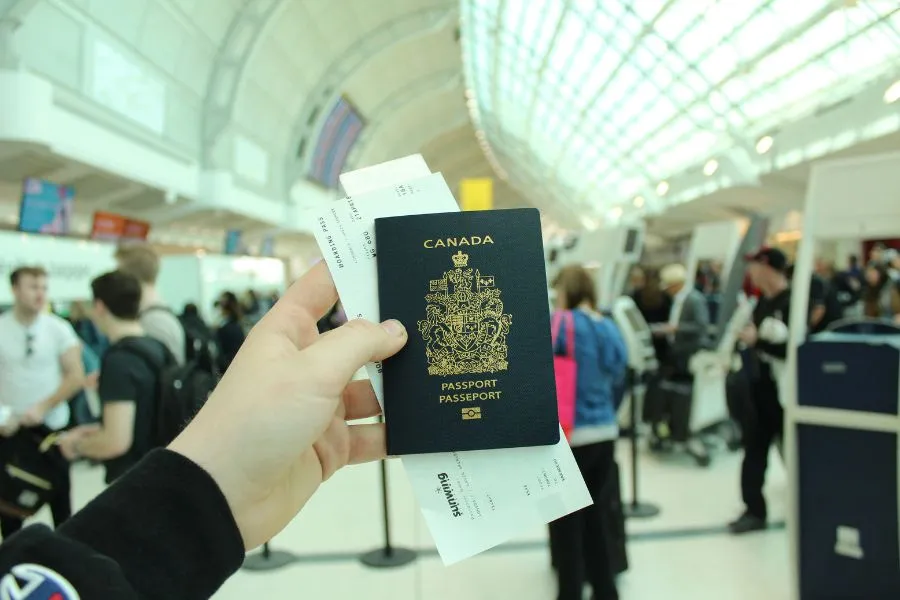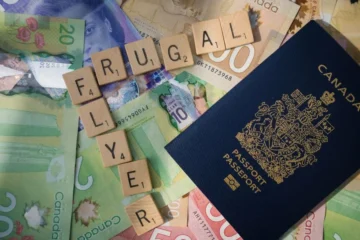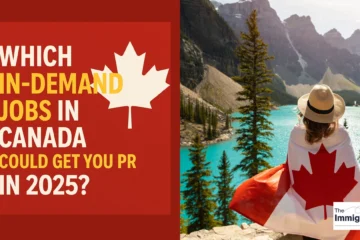Getting your Canadian visa refused can be disheartening, especially if you had big plans to study, work, travel, or reunite with family. But a rejection doesn’t always mean a final ‘no’. In 2025, you still have a few powerful tools on your side: you can reapply with stronger documents or even appeal in certain situations. The key is understanding why your application was initially denied. This article breaks down how to appeal a Canada visa refusal, when it’s better to reapply, and how GCMS notes can help you build a stronger case.
Key Takeaways
Why Are Canada Visa Applications Rejected?
Canadian visa rejections usually happen when the immigration officer isn’t convinced about one or more parts of your application. The most common reasons include a lack of ties to your home country, weak financial evidence, doubts about your intent to return, or incomplete paperwork.
For student visa applicants, IRCC often flags unclear study plans, low proof of funds, or a mismatch between your background and the course you’re applying for. For tourists, officers may think you’re not likely to return home. In some cases, the refusal may simply be due to missing documents or inconsistent information.
Understanding this is essential because how you respond depends on the reason behind the refusal.
Can You Appeal Every Canada Visa Rejection?
The short answer is: not always. Not every Canadian visa refusal comes with the right to appeal. For example, temporary visa refusals — such as study permits, visitor visas, or work permits — do not offer a formal appeal process through IRCC.
However, if your visa is part of a permanent residency stream, such as family sponsorship or skilled worker applications, you may be eligible to appeal to the Immigration Appeal Division (IAD). But even then, appeals take time, require legal help, and aren’t guaranteed to succeed.
Also Read: Which In-Demand Jobs in Canada Could Get You PR in 2025?
That’s why, in many cases, especially for temporary visas, reapplying with a stronger application is often the better move.
Reapplying vs. Appealing: What’s More Effective?
In 2025, reapplying is the preferred path for most people, especially those dealing with tourist or student visa refusals. The appeal process, where available, can take several months or even years, and often involves court-like proceedings.
Reapplication, on the other hand, can be much faster and more straightforward — if you do it right. The mistake most people make is submitting the same documents again, hoping for a different result. That rarely works.
Instead, the best way to strengthen your reapplication is by identifying exactly why your visa was refused the first time — and that’s where GCMS notes come in.
What Are GC-MS Notes and Why Do You Need Them?
GCMS stands for Global Case Management System — it’s the internal system used by IRCC officers to process and record decisions. When your visa is refused, the GCMS notes contain detailed remarks from the reviewing officer explaining exactly what went wrong.
These notes are often much more insightful than the standard rejection letter you receive. For example, while the refusal letter may say “insufficient funds,” the GCMS notes might reveal that the officer doubted the source of your funds, found the bank statements inconsistent, or didn’t believe you had access to them.
Also Read: How Can You Get a Youth Internship Through Young Canada Works in 2025?
In 2025, requesting your GCMS notes costs CAD 5 if filed from within Canada, and they usually arrive within 30–40 days. You can request them through IRCC directly or use third-party services if you’re applying from outside Canada.
Reviewing these notes should be your first step before reapplying.
How to Reapply for a Canada Visa in 2025
Once you’ve reviewed your GCMS notes and understand what went wrong, you can start rebuilding your case. Let’s say the officer wasn’t satisfied with your financial documents — now is the time to add stronger bank statements, tax records, or sponsor letters. If your study plan wasn’t convincing, you might need a clearer explanation of your goals, course relevance, and career path.
In 2025, most Canadian visa applications will be done online via the IRCC portal. When reapplying, make sure to:

- Provide a new, updated Statement of Purpose (SOP)
- Include stronger or clearer supporting documents.
- Reference your past refusal and explain what’s different this time.
- Avoid repeating the same application without changes — it almost always leads to a second rejection.l
Do You Need a Lawyer to Appeal or Reapply?
Not necessarily. Many successful applicants handle their reapplication themselves, especially after reviewing their GCMS notes. However, if your case involves complex legal issues, previous immigration violations, or appeals to the Immigration Appeal Division, it may be wise to consult a licensed Canadian immigration lawyer or regulated consultant.
In 2025, immigration lawyer fees in Canada for appeal consultations or complex reapplications can range from CAD 1,000 to CAD 4,000, depending on the case. For basic guidance or SOP help, some consultants charge between CAD 300 to 800. Always make sure the person you’re working with is IRCC-authorized and not just a self-declared “agent.”
How Long Should You Wait Before Reapplying?
Technically, there’s no mandatory waiting period to reapply after a visa refusal. You could submit a new application the very next day. But that’s usually not a good idea — unless your new application is significantly improved, it will likely be rejected again.
Ideally, wait until you’ve received your GCMS notes, reviewed them, made the necessary changes, and gathered stronger evidence. A well-prepared reapplication sent 30 to 60 days later can be much more effective than a rushed one submitted immediately.
Final Thoughts
A rejected Canada visa can feel like a roadblock, but in most cases, it’s simply detoured, not the end of the journey. In 2025, reapplying with a well-prepared application, backed by insights from your GCMS notes, is often the smartest move. Appeals are limited to specific visa types and can take time, so understanding your situation and acting strategically is key.
Take the rejection seriously, learn from it, and rebuild your case. With the right approach — and maybe a bit of help — your next application could be the one that gets approved.
Reference: https://www.irb-cisr.gc.ca/en/making-immigration-appeal/Pages/immapp-a2.aspx





